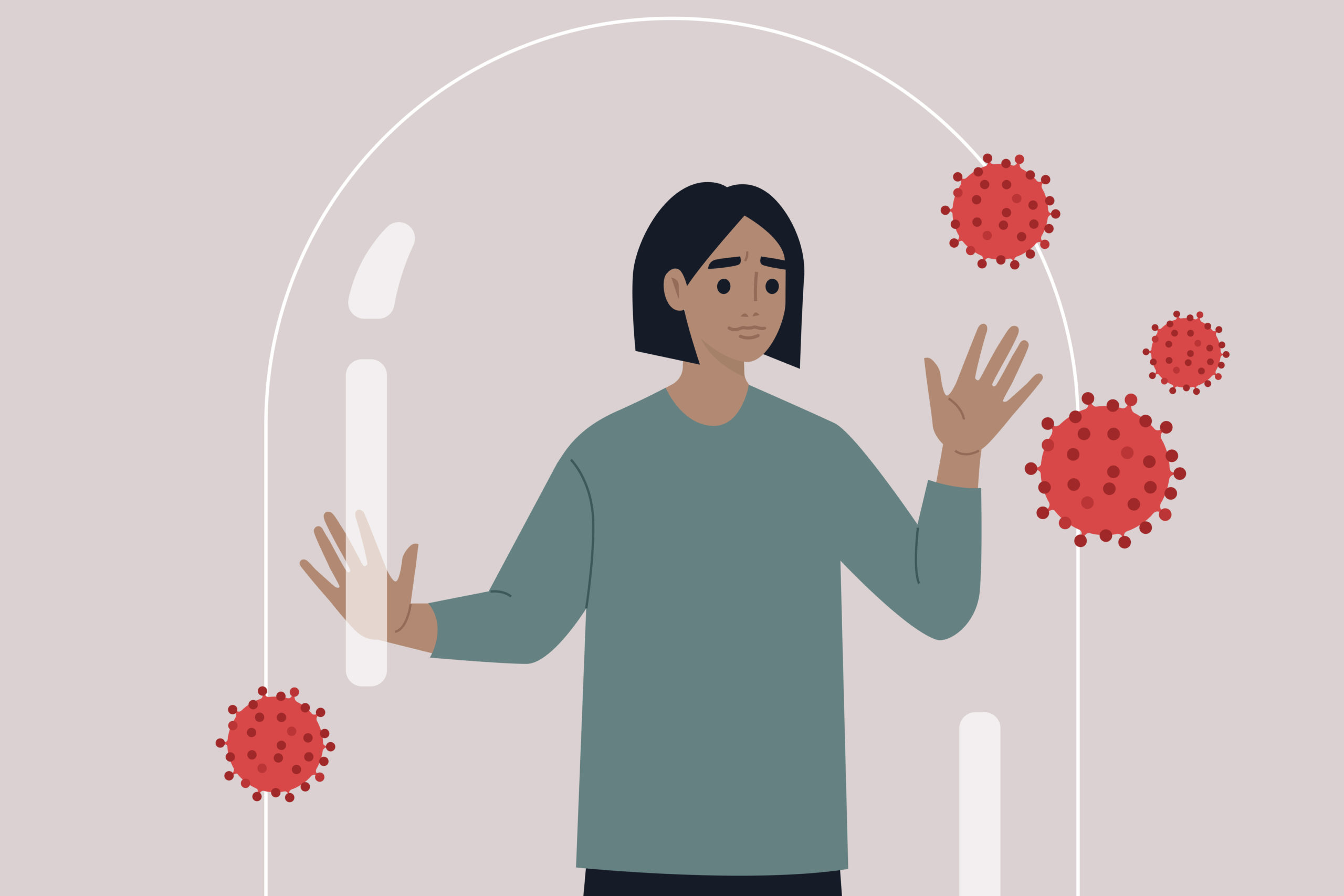As someone who has personally experienced hormonal issues, I know first hand the impact it can have on the body as a whole and modern living is a constant balancing act to keep them in check. For me my skin responds with melasma, for others it might be acne, spots, rosacea, dry skin, sensitive skin, the list goes on. Hormones are intrinsic factors of our body but they are hugely affected extrinsically (externally) Part of the endocrine system, hormones play a vital role in the way our skin looks and feels throughout our lives, through teenage years, pregnancy and menopause.
When our hormones are nicely balanced we feel happy and healthy. Physically, we have glowing skin, a good sex drive, regular monthly cycles, shiny hair and a steady body weight. Most of us think of the male and female hormones – oestrogen and progesterone – when they hear the word “hormones”. We have many different hormones. I like to imagine that they’re all lined up in test tubes; each of these test tubes is filled with the precise amount of hormone needed to maintain balance within the body. If one suddenly gets spilled, or another gets topped up, all of the others have to fight to retain overall balance. This internal struggle is what dictates the condition of our skin on a daily, monthly and yearly basis.
Each of these hormones has a different impact upon the skin:
Oestrogen: The female hormone, which makes women’s skin dewy, hydrated, plump and youthful. The skin ages when oestrogen levels drop.
Testosterone: The male hormone that results in oilier, thicker skin and stimulates collagen production.
Androgens: Are made of many male hormones but women have them too. They stimulate collagen production and make the skin stronger and oilier. These play a role in acne breakouts.
Another important gland that affects the skin is the thyroid: This gland makes two hormones, which affect brain development, breathing, bone health, body temperature, weight gain or loss, muscle strength and metabolism. If your thyroid is overactive, you can become warm, sweaty and flushed. If it’s underactive, your skin may become dry.
If you have an underlying hormone imbalance, there may not be a magic cream or potion that will fix your skin, however there will be some lifestyle, treatment and products that will help you support your skin to keep it on track.
Common symptoms your hormones might be out of whack include
Feeling lethargic
Thinning hair
Loss of sex drive
Skin breakouts
Weight gain
Mood swings
Mental fogginess
Sleeplessness
Anxiety and feeling low
Hot flushes and night sweats
Things you can do to naturally help rebalance hormones
• Reduce toxins in the form of pesticides and certain plastics and household chemicals. Bisphenol is a chemical commonly used in water bottles and food packaging. Phthalates and PVC are found in some cosmetics and hair products. If you imagine a rubber ball left outside in the sun, it will eventually feel crumbly, all the phalates have escaped.
• Where possible eat organic. I realise that it costs more, but if your body is showing signs of toxic over load it might be an investment worth trying.
• Cook food at home rather than grabbing pre-packed foods on the go.
• Increase your intake of magnesium. The best way to get magnesium is actually topically, so try epsom salt baths an oil or a spray.
• Support your liver. As a key elimination organ responsible for metabolising hormones, it’s crucial that you keep it healthy. Do this by eating supportive foods such as broccoli, kale, cabbage, brussels sprouts, turnips and leafy greens, which all help balance hormones.
• Dry body brushing daily to support the lymphatic system followed by a cold shower!
• Stress can be a factor in hormonal imbalances, mediation, yoga, painting, massage, finding something you love that allows you to mentally escape daily stresses.
Facial treatments that can help
Often a hormonal skin will be playing up in someway shape or form, spots, pigmentation, acne, sensitivity, these types of conditions often need a course of facials and will become a maintenance and management of rather than a magic wand. I would start looking for treatments such as low level peels and LED light as a starting point. the peels will be tailored to your specific concern and your home-care is essential, get some professional advice to prevent spending a fortune in the beauty hall. Have a look at my treatment menu for more inspiration.
Foods to reduce
Coffee: It tends to send hormones haywire, so switch is up with herbal teas. If you still crave the taste of coffee, One coffee is fine, try decaffeinated or roasted dandelion tea is a good substitute. Always drink you coffee before 3pm it will help prevent the impact on hormones and always follow your coffee with a large glass of water to support your body flushing this through.
Alcohol: It puts extra stress on your liver and imbalances blood sugar levels. Try not to drink on an empty stomach and match each glass of wine with one of water. Taking a vitamin B supplement the morning after will help your liver’s detoxification process. Chlorella is also a fantastic supplement to counter balance the harmful effects of alcohol.
Bad fats: Sunflower, corn and peanut oils are often included within processed foods. These are what I call “bad fats”. Foods high in Omega-3 fats are “good fats” that fight inflammation. These can be found in flax and chia seeds, cod liver oil and seabuckthorn.
Dairy : I see it time and time again, specifically with skin that is hormonally impacted with spots. as humans we are not made to consume the amount of dairy we do especially from an animal more than 3 times our size!
Healthy hormone food shopping list
Chia seeds
Flax seeds
Sunflower seeds
Sesame seeds
Pine nuts
Pistachios
Eggs – including the yolks
Oily fish
Almonds
Things to be cautious of:
Phytoestrogens: These are naturally occurring substances in plants, which have hormone-like activity. They can be found in foods such as soy. Whilst some soy is good for us, too much can prevent the body from processing iodine, which is stored in the thyroid glad, breasts and ovaries and responsible for cell metabolism and supporting hormone balance.
Exercise in excess: I’m not suggesting that you give up your gym membership and your fitness routine with it. Yet very strenuous cardio, repeated day in day out, can imbalance your hormones and affect your menstrual cycle. So everything in balance! Mix it up with some lighter swimming, walking, Pilates, or yoga.
The contraceptive pill: I know as females we want to have fun & not worry about unwanted pregnancies, however as an aesthetician of over 15 years I have seen hundreds and hundreds of skin & health problems relating back to the pill and other forms of hormone contraception, including the coil and implants. Please do your research, its your health!
Getting back on top of your hormones is a multi-pronged approach, nutrition, lifestyle, acupuncture, detox, finding methods to balance stress levels are all steps in the right direction.
Abigail is one of London’s most respected voices within the health & Beauty industry. She has become famous for her healing hands, alongside the ability to perfectly combine nature with science and technology to deliver her whole health, ‘Vibrant skin vibrant life’ result driven approach. She is regularly invited as a speaker and writer by top skincare & lifestyle brands and a prominent industry awards judge, and continues to consult within the industry as well as resident skincare expert on a number of prestigious health and detox retreats. Visit her on http://www.abigailjames.com





